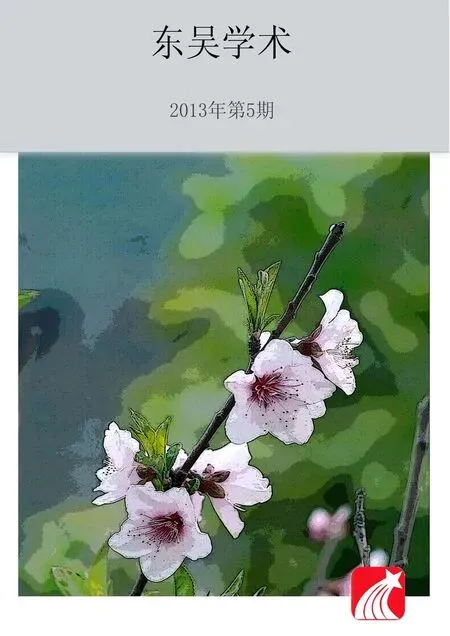Translator'sPrefacetoAStudyofTwoClassics
Yunzhong Shu
Translator'sPrefacetoAStudyofTwoClassics
Yunzhong Shu
As China suffered repeated military defeats at the hands of foreign powers in the second half of the nineteenth century,late Qing reformers such as Liang Qichao began to call attention to the importance of popular fiction as a medium through which ordinary Chinese could be roused to save their country.Following in Liang’s footsteps,May Fourth writers of the 1920s and 1930s continued to promote vernacular fiction as the most effective literary genre for the exposure of the ills in Chinese society.However,in spite of the general recognition of the reach of popular fiction in society,few Chinese critics paid sustained attention to the cultural values deeply embedded in traditional Chinese fiction.After 1949 this oversight became more serious as political considerations swayed the evaluation of traditional fiction,as can be seen,most typically,in Mao Zedong’s criticism of The Water Margin in 1975.The inattention to the cultural values in traditional Chinese fiction continued in the reform era of the 1980s and 1990s,when,for example,filmmakers adapted episodes from traditional novels into widely popular television series without subjecting the original works to critical examination.This persistent error is what Liu Zaifu tried to correct with A Study of Two Classics.
A Study of Two Classicsis not a work of literary criticism in the conventional sense.Instead,it is a critique of cultural standards and ideals inThe Water Margin and The Romance of the Three Kingdoms,two of the most popular traditional Chinese novels.In summing up the worship of violence as the ideal in the former and the worship of trickery as the ideal in the latter,Liu Zaifu examined certain harmful aspects of Chinese culture.As a result,his critique became,in effect,a critique of Chinese culture.While holding up the two classics as windows into certain aspects of Chinese culture,Liu focused his attention not so much on their specific historical origins as on their enduring popularity and social impact,linking them to the Chinese national character.Aware of the multiple facets of Chinese culture,he also explored thesharp contrast in cultural values between the two novels and other Chinese cultural classics,such as The Classic of Mountains and Seas and The Dream of the Red Chamber.As he called the two classics into question,he continued the critical spirit of the May Fourth Movement in contemporary China while expanding the scope of its cultural examination.
In A Study of Two Classics,Liu Zaifu explores not just the contents of the two classics but also the interpretations of the two novels by traditional commentators,such as Jin Shengtan and Li Zhi,and the reception of the two novels in Chinese society.He drew inspiration from May Fourth intellectuals,particularly Lu Xun,and from a wide range of works by Western scholars.For example, he used Oswald Spengler’s notion of pseudomorphosis to explain the degeneration and falsification of certain values in Chinese culture.In terms of his references to both Chinese and Western authors,one should also note that,in his reflections,Liu remained concerned with the issues of modernity and modernization as he frequently compares Chinese cultural values with Western cultural values either implicitly or explicitly.Originally intended for a Chinese audience,his book can help English-speaking readers understand the issues a leading contemporary Chinese critic tried to address.
舒允中,美国纽约皇后大学东亚系教授。
《作家》杂志主编 宗仁发
二〇一三年第八期目录
作家走廊
【胡冬林《狐狸的微笑》研讨专辑】
他发出真正的天籁之音 雷达
胡冬林是中国人的一个骄傲 胡平
不要吝啬我们的赞誉之词 韩作荣
一部非常有分量的作品 阎晶明
一个行动着的思想者 蒋子丹
当代中国大自然文学创作的一个高峰 彭程《
狐狸的微笑》的经典性与独特性 张守仁
长白山笔记
青鸟晨歌 胡冬林
金短篇
她的名字苏童
被远方退回的一封信 弋舟
再见,大学 黄梵
成人礼 徐则臣
小说五篇〔美〕葛浩文 史国强译
风中的芦苇(处女作) 唐继东
巴赫金的狂欢:劳马剧作三种
巴赫金的狂欢 劳马
苏格拉底 劳马
好兵帅克 劳马
塞纳河畔
柯罗的一片片永恒 卢岚
诗人空间
家谱梁平
内部结构 冯晏
断章,崭山村纪实 雨田
记忆·故事
风云之下,海浪之上 艾云
先读为敬 赵培光
朋友风一样 曹利君
《作家》杂志邮局订阅代号12-1,国外代号M751,每月1日出版,月定价14.80元,全国各地邮局(所)均可订阅。如欲邮购,可汇款到长春人民大街6255号《作家》杂志社 (邮编130021),免收邮资。联系电话:0431-85691416
《作家》杂志网址:www.writermagazine.cn《作家》杂志信箱:ccwriter@263.net

